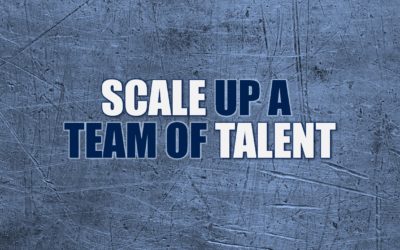Ways to Understand and Guide Better Decision Making
by Rob Marchalonis
My education, experience, and faith have taught me that every person has amazing potential for “good”. In general, I think positively about others and believe that most are well-intended. Would you agree with me on this?
It’s a dilemma however, when good people make “bad” decisions, especially when related to business. Bad decisions come in many varieties but, for our purposes here, let’s stick to business decisions that can put your stakeholders, your finances, or your entire business in peril.
As a business owner or leader, how well do you understand and oversee high-stakes decision making? To oversee better decisions, consider the impact, who should be involved, human nature, and recovery options if necessary:
Impact
Ahead of any significant decision, determine the relevance, scope, timing, required resources, and desired outputs:
- Who does the decision affect most, considering all stakeholders?
- Owners, investors, employees, customers, suppliers, community, families, etc.
- What critical outcomes of the organization will be most affected?
- Consider stakeholder satisfaction, financial results, productivity, growth, and risk management
- When will the decision have an impact?
- Immediately, next week/month/year, not sure? What milestones can you monitor?
- How will the decision be measured and what are the goals?
- What will indicate success (or failure) and how will it be reported or communicated?
Roles
Who should be involved in the decision-making process?
- Decision Maker – who will own the decision and why?
- Overseers – does the decision require oversight by others and, if so, who?
- Advisors – who else with knowledge or experience should you consult with, and what do they recommend or caution?
Hazards
Beware of personal and psychological shortcomings that are often at the root of bad decisions: (Reference – see also Google Dictionary)
1. Inexperience – little or no time spent in the realm within which decisions are being made.
2. Emotion – letting feelings, emotions, or “gut feel” override more reliable fact-based research, data, and testing.
3. Naivete – inaccurate assumptions, or lack of scrutiny, skepticism, or wisdom, sometimes related to limited exposure or experience.
4. Optimism – relying too much on belief, hope, or trust that everything will be fine, rather than a plan and diligence.
5. Ignorance – lack of adequate knowledge, information, data, research, study, training, or understanding.
6. Fear – reluctance to question, challenge, or take action when ideas or decisions evolve from good, to questionable, to bad.
7. Pride – embarrassment or unwillingness to ask for help, seek assistance, reveal weakness, or admit mistakes.
8. Insecurity – a lack of self-confidence and awareness, which can result in decisions made for appearances or to impress others.
9. Laziness – an unwillingness to do the hard work needed to evaluate, prepare, and execute decisions thoroughly and successfully.
10. Greed – self-serving decisions that can significantly reward some individuals but often at the expense of others.
11. Hubris – excessive confidence or arrogance that overrides appropriate judgment, caution, self-awareness, and humility.
12. Bullying – using position or power to coerce or intimidate others who can’t or won’t speak up or defend their position.
Recovery
Questions to ask if you need to recover from a bad decision:
• Assessment – what facts and data can you rely on to effectively, efficiently, and regularly evaluate decisions?
• Options – given your assessment, what options or possible next-steps can you identify and prioritize or sequence?
• Decisiveness – what actions will you take, based on fact-based data, ideally determined ahead of time?
• Transparency – who should you include as you evaluate, decide, communicate, reconcile, and move past bad decisions?
• Move On – are you at a point where effort and resources will be better spent moving forward, rather than looking back?
Even small decisions can have a significant negative impact on your business if not adequately considered and supported. With a better understanding of decision-making factors, leaders can significantly reduce bad decisions… even those made by good people.
Rob Marchalonis helps leaders make better leadership, strategy, and process decisions. Learn more at LSP123.com or connect with Rob@LSP123.com ©2020
More Business Advice
Business owners, employers, and leaders can sharpen their skills with the content below.
Who is Flying Your Plane?
Do You Need Pilots or a Flight Instructor? by Rob Marchalonis. Business owners, are you flying with "experienced pilots"? Not in the air, but rather on the ground in your business. Are your top leaders, those who are "piloting" the key functions of your organization,...
Scale Up Talent
12 Talent Options for Business Leaders By Rob Marchalonis. Business leaders, what talent do you need to tackle your current challenge or project? Do you have the talent in-house? If not, what's your plan? If you are thinking about hiring a person full-time, hold on!...
Are Smartphones at Work Smart?
by Rob Marchalonis. When I work with business owners and leaders to improve employee productivity, the topic of smartphone use often comes up. What to do about these pocket-sized devices that were a non-issue just a decade or so ago? Used to be that only the...
12 Steps to Launch Your Leadership
A-Team Advice for “Young” Leaders by Rob Marchalonis. Are you a young leader? Regardless of your age, have you recently accepted a new leadership role? Perhaps you’ve done well in a job and were moved into a different position with more responsibility. Did someone...
Three Legs of Leadership
By Rob Marchalonis. As I work with top leaders, I find that their role is often different than what others may think. Which of the "three legs of leadership" are you experiencing right now? Perks From the outside, it may look like being the leader is quite glamorous...
What’s My Face Doing?
What you think, you communicate. Leaders, when you interact with others please realize that most of your communication is non-verbal. Regardless of what you say, be mindful of what you are communicating. What's really on your mind? When leaders say one thing but think...
C-Suite Time Management
Virtually every C-level executive that I work with suffers from a critical shortage of one precious resource - time! Nothing they can do will produce any more of it in a given week. The only solution is to manage the time they have available very deliberately and...
The Role of Leaders
Great leaders develop smart strategy, establish processes for they're workgroup, and then use their wisdom, experience, and authority to deal with exceptions.Read for More Business Advice Whether you're a C-level leader, entrepreneur or looking to sharpen your...
Congratulations to AL and LSP!
I'm admittedly not the biggest Alabama or even sports fan, but I'm continually amazed at the display of world-class LSP in televised football. Live, up close, HD, plus slow-motion replay and analysis. Leadership, Strategy, & Process in 1-2-3 order is a simple...
Who’s In Your Trusted Inner Circle?
"You are the average of the five people you spend the most time with." Jim RohnRead for More Business Advice Whether you're a C-level leader, entrepreneur or looking to sharpen your leadership skills, the content below will help you level-up your business leadership....









